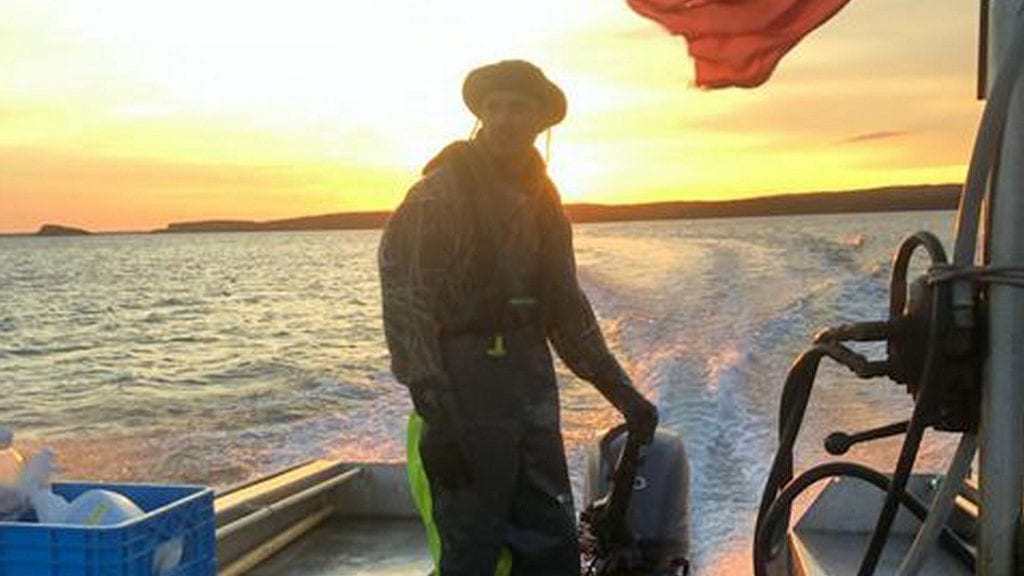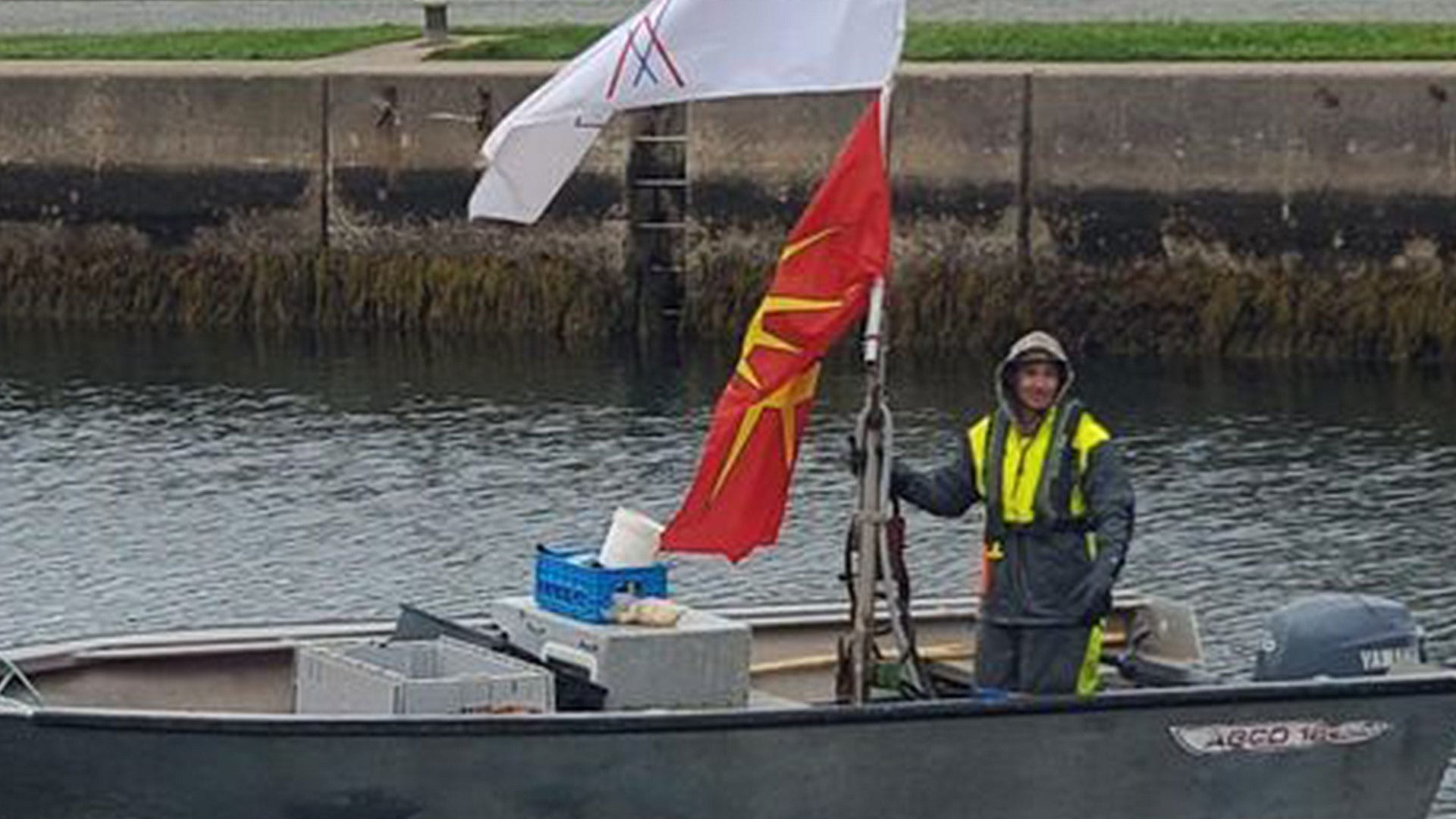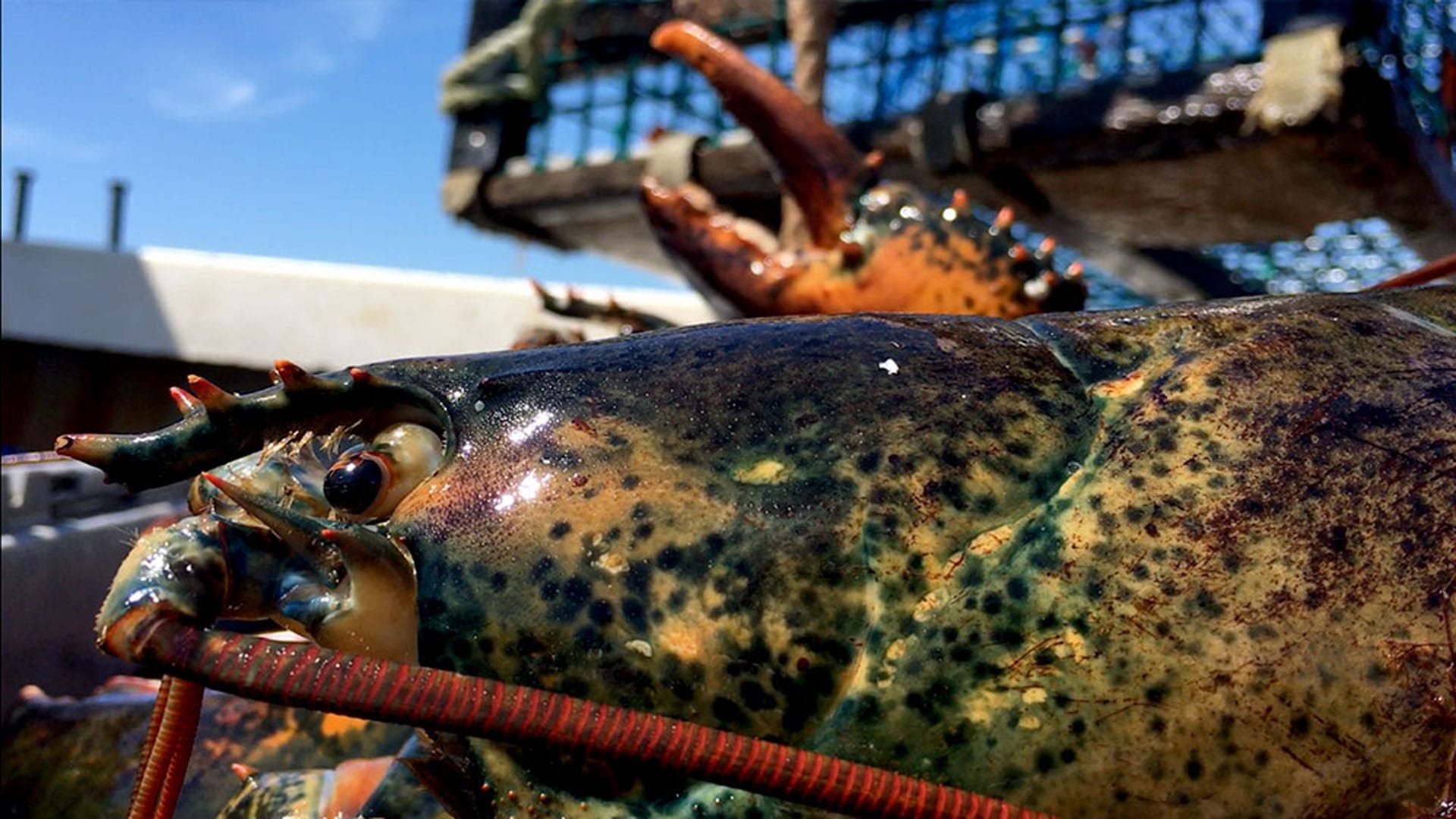
Sipekne'katik and Potlotek First Nations launched treaty fisheries outside the DFO's commercial season last year. Photo courtesy: Craig Doucette
Craig Doucette hoped to make few a bucks to help build a house for his young daughter and himself when he dropped lobster traps in St. Peter’s Bay in September 2019.
But, instead, the 36-year-old Mi’kmaw man wound up being investigated for over a year by federal fishery officers, charged with three offences and summonsed to appear in court on March 29.
“I can’t emphasize the word frustration enough,” said Doucette, a member of Potlotek First Nation in Unama’ki, also known as Cape Breton, Nova Scotia.
“I feel like I’m doing nothing wrong – and here I am. I have to go to court. I’m being treated like a criminal. It’s belittling. It hurts as a grown man to go through something like this and have my 12-year-old daughter watch.”
Doucette stands accused on two counts of fishing lobster without authorization. He’s also accused of fishing lobster during a closed time – violating the Atlantic Fishery Regulations of the Fisheries Act.
Doucette doesn’t dispute that he was fishing. But he contends what he did wasn’t illegal based on Peace and Friendship Treaties from the 18th century.
“One-hundred-and-ten per cent: I’m not guilty,” he said. “I’m going with Donald Marshall’s ruling as my defence. I’m an Aboriginal man trying to make money, a moderate livelihood to get by and build a home for my family. That’s it.”
Donald Marshall Jr. was charged and convicted of three Fisheries Act infractions in the ’90s. He fished for eels during a closed season, fished with an illegal net and sold eels without a licence.
The Supreme Court eventually overturned the convictions in 1999.
The high court concluded that, based on the treaties, Marshall had a constitutional right to hunt, fish and trade to secure what it called “necessaries,” or the modern day “equivalent to a moderate livelihood.”
The court also said Ottawa can violate the treaty, infringe the constitutional right and regulate the fishery if there is a justifiable, substantial and compelling reason to do so – such as conservation.

Twenty years later, Doucette hit the bay with a 40-year-old, 16-foot aluminum skiff to exercise that right.
“You would probably be nervous that somebody even uses it in the water,” he said with a laugh. “But it was a good, sound boat. It wasn’t leaking or anything, and I was fishing 10 traps out of it.”
Department of Fisheries and Oceans (DFO) officers soon approached him and asked him what he was doing. A few days later, they confiscated his traps.
But he was undeterred. Doucette took the lobster into the heart of St. Peter’s village and sold them.
“We shouldn’t have to sell our lobster like we’re selling it on the black market for three dollars less a pound just so someone will buy it quick,” he said. “I went and I sold my lobster in the middle of St. Peter’s at the market price that day, and I had people buy it.”
Then he went and got more traps and dropped them back in the bay. DFO didn’t seize these ones, but fishery officers did surveil and monitor his activity, Doucette said.
“For weeks and months after, they harassed me. And when I say harassed me, they wouldn’t come up to me and talk to me but they would make it visible that they were watching me,” he said. “They would park across the canal and watch me with binoculars.”
When he set out again in spring, DFO seized the traps once more.
Meanwhile, he was also helping Potlotek develop a moderate livelihood fish management plan.
Finally, in January, a fishery officer walked up to his house and handed him the summons to appear in court – what he called reconciliation’s “Death Certificate” in an Instagram post.

Still, he was determined to fish.
Doucette participated in Potlotek’s treaty fishery, which launched a year after he first dropped the traps. This was shortly after the Sipekne’katik First Nation launched theirs.
Potlotek’s fishery was subject to DFO gear hauling and enforcement operations. Sipekne’katik dealt with harassment, intimidation and violent vigilantism from commercial harvesters.
An APTN News investigation based on government documents revealed DFO’s National Fisheries Intelligence Service closely surveils and tracks Mi’kmaq who, like Doucette, want to exercise their right to catch and sell fish.
The records show the intelligence unit and DFO law enforcement didn’t take threats of violent protests against the Mi’kmaq seriously because they were more concerned about policing moderate livelihood fishing and those who support it.
Read More:
DFO, RCMP knew violence was coming but did nothing to protect Mi’kmaw lobster harvesters: Documents
Ottawa and the treaty beneficiaries never agreed on how to implement the moderate livelihood right or define it.
DFO insists on a “one fishery for all” policy. It’s taken different shapes over the last two decades. Ottawa spent half a billion dollars but the goal was always to integrate First Nations with the existing commercial fishery.
But many Mi’kmaw leaders view DFO’s approach as assimilationist and colonial. They seek more recognition of their national autonomy.
It’s been a 21-year stalemate. Lawsuits and threats of litigation have begun to fly about.
Both Sipekne’katik and Potlotek recently filed legal action against provincial fish buying regulations. The provincial rules state all fish sold must be caught under a DFO licence.
“I think the government and non-Indigenous organizations have been waiting for this opportunity to re-litigate Marshall,” suggested Sen. Dan Christmas, asked about the prospect of this ending up in court again. “I say it’s already been decided.”
Christmas is the first Mi’kmaw person appointed to the Senate. He said DFO botched and bungled this file so badly they should no longer be in charge.
“I can’t see DFO going forward. They’ve lost all credibility now with Indigenous people here in Atlantic,” he said in an interview. “There’s no way of coming back from this one. I think we have to rethink that whole relationship once more.”
Christmas, Sen. Brian Francis from P.E.I., and Nova Scotia Liberal MP Jaime Battiste sent a joint letter to ministers Bernadette Jordan, Carolyn Bennett and Marc Miller on Sept. 30, 2020. The three Mi’kmaw parliamentarians laid out their best advice to the government on a “new and better way forward.”
They advised Ottawa to transfer the file over to Crown-Indigenous Relations, which Christmas said has more experience with modern treaties, nation-to-nation accords and self-government agreements.

They advised Ottawa to acknowledge the Mi’kmaw traditional legal order of Netukulimk, a centuries-old approach to sustainable harvesting and environmental stewardship.
They also recommended the feds work in partnership rather than the top down, colonial approach of old.
They proposed a parallel Atlantic First Nations Fisheries Authority, pointing to a 1997 self-government agreement on education that resulted in soaring graduation rates as an example of things done right.
But Jordan’s “new path” forward on moderate livelihood included none of these recommendations. It did adopt nearly all the “BIG 10” demands industry harvesters made.
And that’s who Christmas believes DFO wants to appease.
He suggests DFO is again resorting to band-aids and patchwork, throwing money at the problem without addressing the real issues.
“Once this new policy falls flat on its face – because it will – once they pick up the pieces, they’re going to have to define a new way of dealing with Indigenous people in the fishery,” he said.
“And that new way has to be nation to nation. It has to include self-governance, and you have to take it out of the hands of DFO. They just don’t know how to do it.”
Though industry harvesters lauded the plan, chiefs across Nova Scotia and P.E.I unanimously rejected it.
Doucette also thinks it’s doomed.
“We’re not going to follow their dictatorship,” he said. “It’s more about self-governance now than just fishing lobster.”
Sipekne’katik Chief Mike Sack vowed to support his harvesters if charged by DFO.
Doucette said he’s been in touch with Potlotek leadership but right now plans to defend himself.









